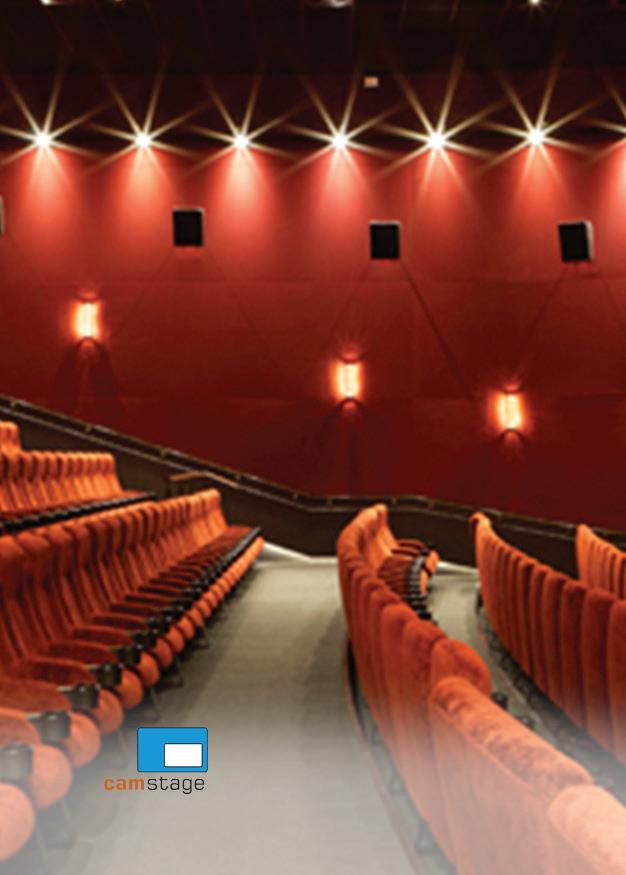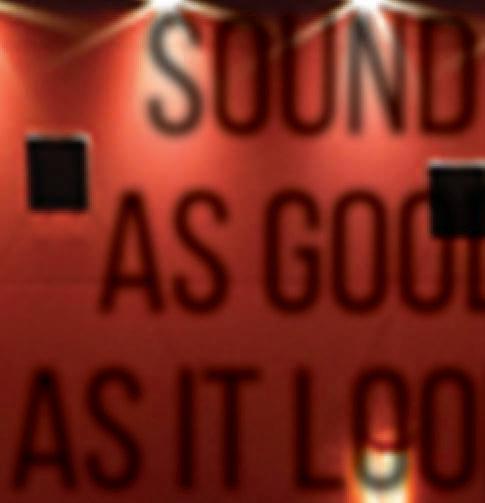
3 minute read
The resolution revolution: is 8K heading to our cinemas?
opinion
8K resolution? It’s all in the detail
Peter Knight considers the impact of the 8K resolution revolution — will it affect the way that we project digital cinema any time soon?
W
alking around IBC last September you couldn’t fail to notice the vast array of televisions on display all capable of showing 8K resolution, some at 120fps. I
could walk out of a Curry’s electrical store
today with a brand new 55in Samsung 8K television for less
than £2,500, For a few more thousands, a selection of 80in+ models is available. All come with HDR or HDR10+ options on top, and several feature Dolby Atmos too. That may not be super-cheap, but the technology is readily available.
The Consumer Technology Association forecast that US
sales of 8K UHD TVs would reach 175,000 units in 2019. Though
IHS Markit downwardly adjusted its own estimates for 2019 8K television sales from 430,000 to 167,000 units, it still represents a growth in sales. The variety of 8K models available and being reviewed is fast-approaching the number of 4K ones. Some
contend 8K will be a mainstream consumer product by 2023.
Content is king — and this has been part of the challenge
of 4K, with relatively few cinema features released in 4K, despite the availability of 4K projectors for over a decade. YouTube has supported the upload of 8K videos since 2015,
with Vimeo adding 8K support in November 2017. As we went
to press, it had 8,000 videos tagged with 8K.
While content is still scarce, it is appearing gradually. At the end of 2019 the rugby world cup was broadcast in Japan in 8K, and this year’s Olympics Games will be available in 8K. And just recently we also saw an announcement of a new 8K
The resolution revolution? In the non-cinema entertainment space, 8K projectors are already available, with Digital Projection unveiling one in 2019. Museums, attractions, event and projection mapping are all
making use of the higher resolution. So with all of this 8K
activity happening in other professional environments, let
alone in the home, where does this leave cinema? Should the projectors in cinemas ramp up to 8K or even 16K to compete? Whenever I raise the topic at different technology firms in our sector, the response has been unequivocal — there isn’t the
content. Despite having 4K projectors, not many movies are
released with a 4K DCP. That said, I certainly have heard some
suggesting that 8K is not an impossibility in cinema’s future.
In the realms of on-demand and streaming services, there 4K content is being widely consumed, much of which now also has HDR available with it. But even higher resolution with
higher dynamic ranges and faster frame rates all means larger
file sizes. Larger file sizes mean a greater requirement for
storage space, more processing and more network capacity, much like squeezing an eight lane-highway into a small country road. The jump to 8K is 16 times that of standard HD.
So in a world of hard-pressed bandwidth, cinema may well
have a role to play as venues capable of handling robustly the
demands of 8K technology. One final thought — the optimal viewing distance for that 55in 8K TV set at Currys? Just under 2ft. I don’t know about you, but I sit a bit further back. As a rule, bigger screens deliver better resolution more comfortably.
SOUND as good as it looks


CUSTOM DESIGN acousticAL solutions FOR CINEMA

Refurbishment and new install
Flexible in design
Highest sound effi ciency ● Meets all fi re safety requirements
camstage.com sales-team@camstage.com
YOUR CINEMA
Immersive sound and the sensation of touch for every seat in your cinema

FLEXOUND Augmented Audio™ combines high quality audio with physical vibration, creating a unique immersive experience. The technology complements all current sound systems without the need for reprogramming or remix. A variety of seats with FLEXOUND is available globally.
Premium Verona Premium Milano
Let your skin do the listening
Equal sound quality independent of seat location.
Improved clarity of dialogue.
Deeper focus and immersion into the storyline.
Powerful experience without high sound volume.
No wearable accessories needed.
Enhanced emotions and engagement.
Works with any audio content










